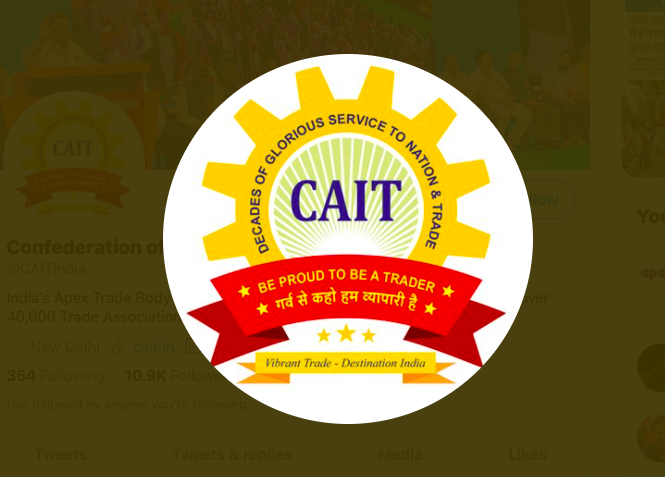New Delhi, NFAPost: Advocating the cause of small retailers like Kirana Stores, General Stores, Pan shops and hawkers, the Confederation of All India Traders (CAIT) has urged Union Finance Minister Nirmala Sitharaman to lower down the GST tax rate on beverages which constitute almost 30% of the total turnover of such small shops.
Currently the GST tax rate on Beverages is GST plus Cess that comes to 40% which heavily blocks the working capital of small retailers.
CAIT National President B C Bhartia and Secretary General Praveen Khandewal said that if GST tax rate is lower down rationally, it will increase the turnover of small shops which will yield more revenue to Central and State Governments.
A study commissioned by CAIT in association with Hansa Research has revealed that a few minor tweaks in GST structuring can immediately give a major fillip to retailers’ income, giving them more working capital to leverage. This can lead to higher sales growth, which in turn will also significantly increase the GST revenues.
“CAIT will launch a national campaign amongst the stakeholders and citizens of the country which will forge an alliance with various other verticals of economy like farmers, transporters, SMEs, women entrepreneurs, consumers, hawkers etc to impress upon both Central government and State governments through presenting memorandums to Chief Ministers and Finance Ministers of all States, to lower down the tax rate on beverages,” said CAIT National President B C Bhartia and Secretary General Praveen Khandewal.
They also said that India should move to a Sugar Based Tax (SBT) system keeping tax slabs proportional to the sugar in products.
“This means, higher the sugar in products, higher the tax. For beverages that are in the low and no sugar category, this will reduce taxes, opening up capital for the retailers to make more purchases, increase sales and double their incomes. This also benefits the common man significantly, by reducing their household costs at the same time,” said CAIT National President B C Bhartia and Secretary General Praveen Khandewal.
CAIT’s proposal is also in alignment with the recommendations made in the Economic Survey of 2023, which has suggested that India should move from Food Security to Nutritional Security. Naturally, a key component in that would be the proposed sugar based taxation system.. Beverages are not a sin tax category as neither are they a luxury good nor are they a demerit product.
In pursuance of this vision, the CAIT in association with Hansa Research, has released a white paper that discusses ‘Doubling Retailers’ income through focus on the beverages sector’.
The current high rate of taxation, specifically in the beverages category is putting additional burden on the pocket of a common man and blocking working capital of small traders. The CAIT-HANSA paper also discusses how tax rationalisation can add to revenue growth of the government and largely convert the unorganised/ counterfeit economy to a formal economy leading to more investments coming in the country.
As it is already stated that rationalisation of tax structure of beverages sector will boost revenue generation, the CAIT will impress upon the Central and State Governments to reconstitute tax rates for beverages, being a common man’s drink. The CAIT will also identify nutritional products and will motivate consumers to make conscious choice thereby strengthening Government’s goal of ‘Eat Right India’.





